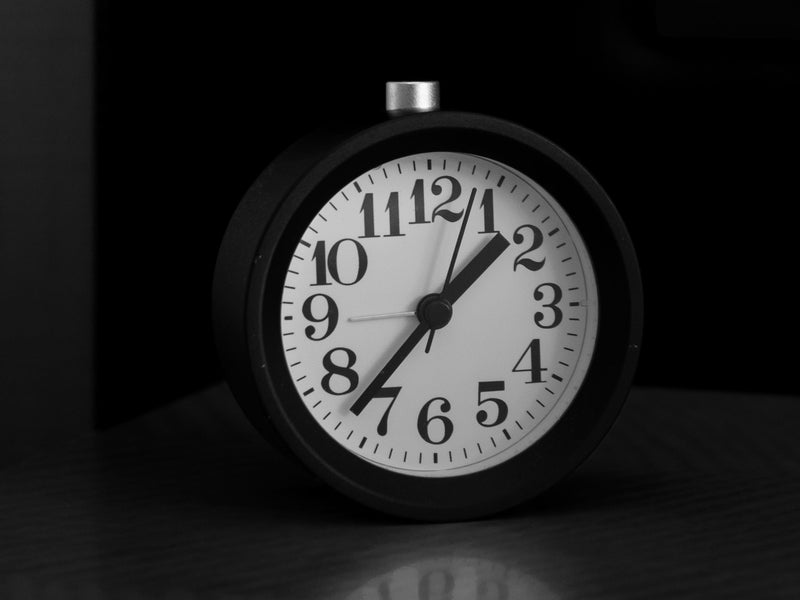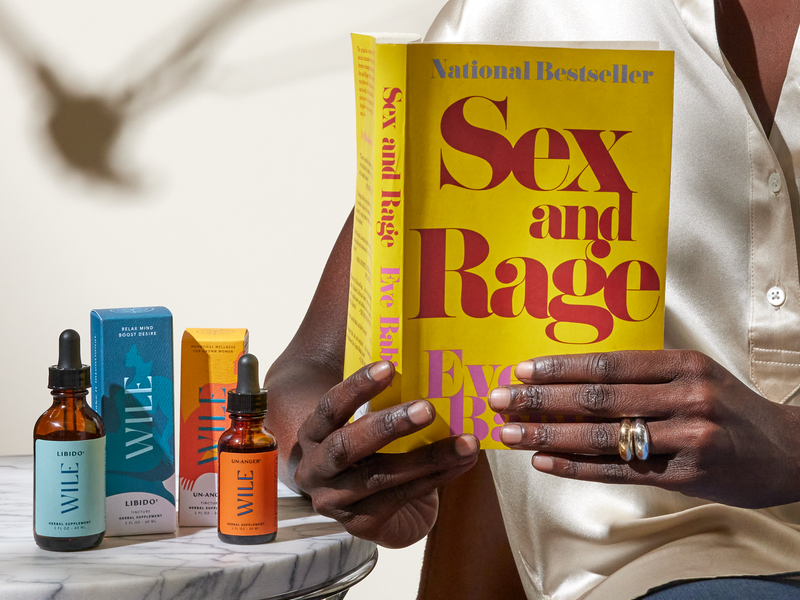Thank this herb for 2000+ years of better periods
Some surprises are fun: An unexpected gift, a card in the mail or running into a friend. When it comes to periods, however, the element of surprise loses its charm. And after 40, these flash periods can feel like you’re reliving junior high. No white pants!
Unfortunately, hormone changes in midlife can make periods erratic, even for those of us whose cycles used to run like clockwork. If your period seems to have ditched its calendar, you’re suddenly spotting or PMS has reached exorcist levels, you’re not the only one.
Fortunately, dong quai root can reduce PMS symptoms and help your periods return to regularity — and over 2000 years of use in Traditional Chinese Medicine back it up.
Why We Love Dong Quai Root
- Like we mentioned, dong quai has a long history of menstrual health use. Its status as a women’s health super herb earned it a place in our Wile 40+ Period Support supplement and also earned it the nickname “female ginseng.” It’s important to note, however, that dong quai (Angelica sinensis) and ginseng (Panax ginseng) are different species with different properties.
- It’s naturally anti-inflammatory and full of antioxidants, which is great for maintaining long-term health and lowering your risk of some conditions like heart disease. The antioxidants and anti-inflammatory compounds in dong quai also make it a great herb for liver health.
- Evidence points to neuroprotective properties in dong quai, which means that it can protect your brain from injury and promotes memory.
Key Benefits:
Helps Regulate Periods & Flow - Dong quai’s ability to regulate periods make it an important part of perimenopause supplements like our 40+ Period Support. Studies about how dong quai works to regulate periods are still inconclusive, but one of the working theories is that it promotes blood flow to the pelvic region. Another theory is that it balances hormones in women over 40, which improves many aspects of perimenopause.
Alleviates Period Pain - Menstrual discomfort often escalates—or seems to appear out of nowhere—in our 40s or in the throes of perimenopause. This can feel like PMS cramps or simply more abdominal pain and physical discomfort throughout your flow. Dong quai can help!
Reduces Hot Flashes - Dong quai can relieve hot flashes and night sweats,* which is great news for everyone who has ever woken up with a jolt in a pool of sweat. Researchers are still trying to figure out whether dong quai contains phytoestrogens, which mimic estrogen and help with hormone balance after 40. While we’re looking forward to more clinical research, traditional knowledge about dong quai has given women hot flash relief for centuries.
*Reminder: Night sweats are hot flashes, just at night.
Traditional Uses:
Dong quai’s use in Traditional Chinese Medicine goes back at least 2000 years. It’s known to promote healthy blood flow, especially relating to menstruation. Some other traditional uses for dong quai include:
- PMS treatment
- Menopause support
- Immune system regulation
- Pain relief
- To relax the bowels
About Dong Quai:
Dong quai is native to high mountains in China, Japan and Korea. It has brown, branching roots (the medicinal part!), green and purple stalks and lacy white flowers.
Found In (Wile Products)
Things to Know About Dong Quai:
Like Beyonce and her backup dancers, dong quai shines brightest when accompanied by an ensemble. It’s best to take dong quai in combination with other herbs that can balance it out and complement its properties. That is exactly what we did with our 40+ Period Support supplement, already formulated with complementary herbs by a female naturopath with decades of experience.
Talk to your doctor before taking dong quai, especially if you’re also taking blood thinners.
Avoid dong quai if you’re allergic to its close relatives, carrots and celery.
Dong quai is not recommended for pregnant or breastfeeding people.
Clinical Research
- Cao, Peng, Jinlu Sun, Mitchell A. Sullivan, Xiao Huang, Hanxiang Wang, Yu Zhang, Na Wang, and Yu Zhang. “Angelica Sinensis Polysaccharide Protects against Acetaminophen-Induced Acute Liver Injury and Cell Death by Suppressing Oxidative Stress and Hepatic Apoptosis in Vivo and in Vitro.” International Journal of Biological Macromolecules 111 (May 1, 2018): 1133–39. https://doi.org/10.1016/j.ijbiomac.2018.01.139.
- Chen, Xiaopeng, Wei Li, Xuefeng Xiao, Lanlan Zhang, and Changxiao Liu. “Phytochemical and Pharmacological Studies on Radix Angelica Sinensis.” Chinese Journal of Natural Medicines 11, no. 6 (November 1, 2013): 577–87. https://doi.org/10.1016/s1875-5364(13)60067-9.
- Kupfersztain, C., Carmela Rotem, R Fagot, and B Kaplan. “The Immediate Effect of Natural Plant Extract, Angelica Sinensis and Matricaria Chamomilla (Climex) for the Treatment of Hot Flushes during Menopause. A Preliminary Report.” Clinical and Experimental Obstetrics & Gynecology 30, no. 4 (January 1, 2003): 203–6.
- Rotem, Carmela, and Boris Kaplan. “Phyto-Female Complex for the Relief of Hot Flushes, Night Sweats and Quality of Sleep: Randomized, Controlled, Double-Blind Pilot Study.” Gynecological Endocrinology 23, no. 2 (February 1, 2007): 117–22. https://doi.org/10.1080/09513590701200900.
- Wei, Wenlong, Rui Zeng, Caimei Gu, Yan Qu, and Linfang Huang. “Angelica Sinensis in China-A Review of Botanical Profile, Ethnopharmacology, Phytochemistry and Chemical Analysis.” Journal of Ethnopharmacology 190 (August 22, 2016): 116–41. https://doi.org/10.1016/j.jep.2016.05.023.
Sources
- “DONG QUAI: Overview, Uses, Side Effects, Precautions, Interactions, Dosing and Reviews,” n.d. https://www.webmd.com/vitamins/ai/ingredientmono-936/dong-quai.
- Gubili, Ting Bao Jyothirmai. “Dong Quai - The ASCO Post,” n.d. https://ascopost.com/issues/august-25-2022/dong-quai/.
- Heitz, David. “Why Is Dong Quai Called the ‘Female Ginseng’?” Healthline, April 1, 2019. https://www.healthline.com/health/dong-quai-ancient-mystery.
- Mount Sinai Health System. “Dong Quai,” n.d. https://www.mountsinai.org/health-library/herb/dong-quai.
- National Toxicology Program. “Chemical Information Review Document for Dong Quai,” September 2008. https://ntp.niehs.nih.gov/ntp/noms/support_docs/dong_quai090308.pdf.
- Memorial Sloan Kettering Cancer Center. “Dong Quai,” n.d. https://www.mskcc.org/cancer-care/integrative-medicine/herbs/dong-quai.
This article is intended for informational purposes and is not intended to replace a one-on-one medical consultation with a professional. Wile, Inc researches and shares information and advice from our own research and advisors. We encourage every woman to research, ask questions and speak to a trusted health care professional to make her own best decisions.




